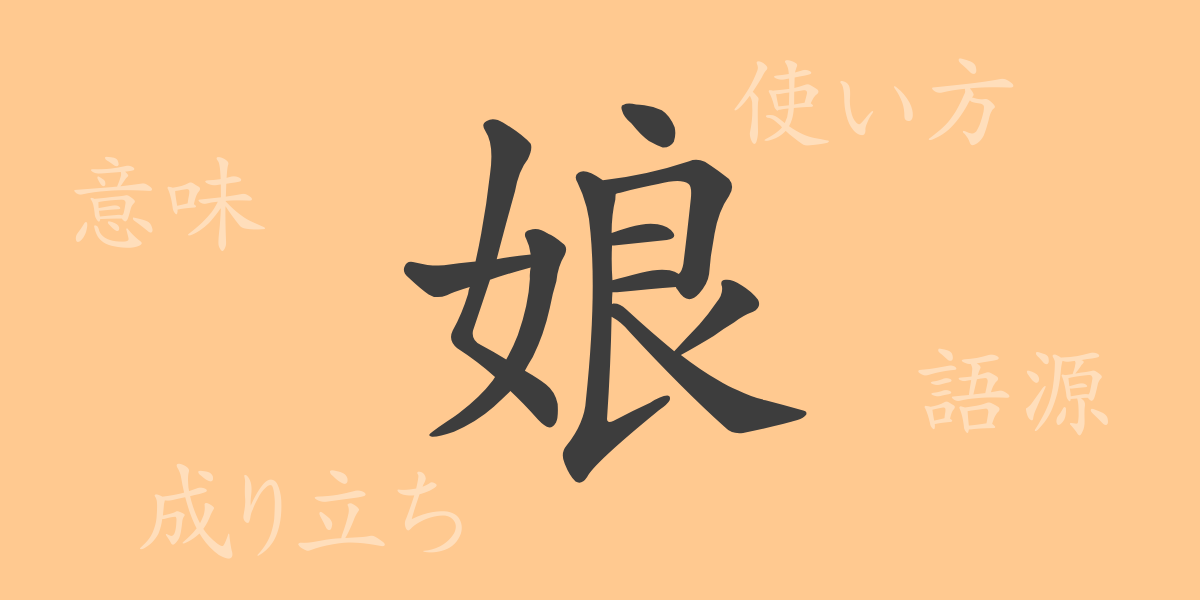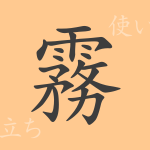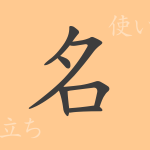Kanji (かんじ) deeply rooted in Japanese culture carries profound meanings and histories within each character. The character “娘” (むすめ, musume), commonly used to symbolize family, holds a rich background in its origin and usage that many might not be aware of. In this article, we will unravel the charm of the kanji “娘” (むすめ, musume), delving into its etymology, modern usage, and even the idioms and phrases that include this character.
Origin of 娘 (むすめ, musume)
The character “娘” (むすめ, musume) originates from ancient China. It combines the character “女” (おんな, onna), meaning “woman,” with “𡦌” (はいだし, haidashi), which signifies “minor” or “young.” This combination gave rise to the meaning “female child,” or “daughter.” Although the character’s form has evolved over time, the fundamental meaning has remained unchanged.
Meaning and Usage of 娘 (むすめ, musume)
In modern Japanese, the character “娘” (むすめ, musume) is primarily used by parents to refer to their own female child, especially an unmarried one. It is also broadly used to refer to other people’s female children and, at times, to affectionately denote young women. The age definition is not strict and often varies depending on the context.
Reading, Stroke Count, and Radical of 娘 (むすめ, musume)
The kanji “娘” (むすめ, musume) is a commonly used character in Japanese, and its reading and structure are as follows:
- Reading: It is not read using the On’yomi (音読み, on’yomi) method. The Kun’yomi (訓読み, kun’yomi) reading is “むすめ” (musume).
- Stroke Count: A total of 10 strokes.
- Radical: 女 (おんなへん, onnahen)
Idioms, Phrases, and Proverbs Containing 娘 (むすめ, musume)
There are numerous idioms, phrases, and proverbs that include the character “娘” (むすめ, musume). Here are a few examples:
- 娘婿 (むすめむこ, musumemuko): Refers to one’s daughter’s husband, or son-in-law.
- 娘道成寺 (むすめどうじょうじ, musumedōjōji): A Noh (能, nō) play that features the legend of a girl transforming into a serpent.
- 娘々 (じょじょ, jojo): A term used to refer to young women, expressing affection and endearment.
Summary of 娘 (むすめ, musume)
The meanings embedded in each kanji character reflect the culture and history of a nation. The character “娘” (むすめ, musume) has been used to express the warmth of familial bonds and affection towards young women. By understanding its reading, stroke count, radical, and the idioms and phrases it forms, we can appreciate the profound depth of the Japanese language.
“`

























